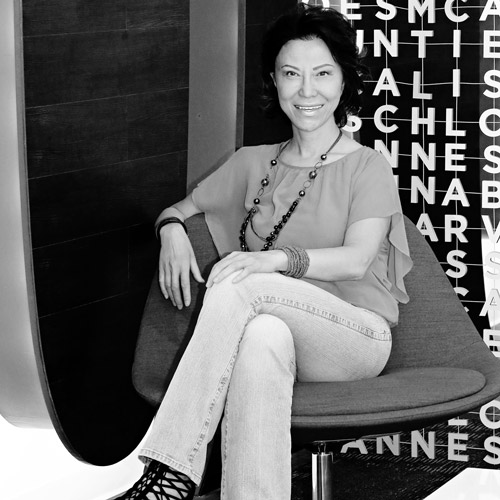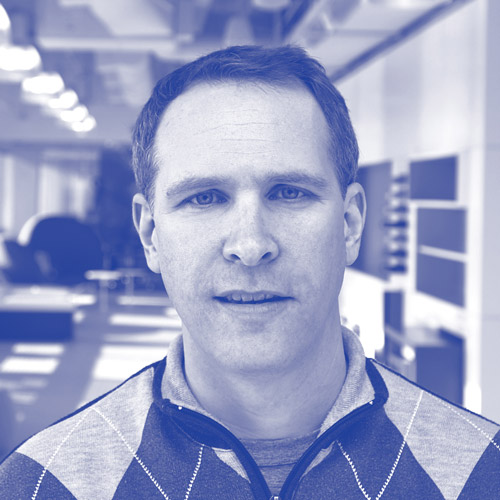In a world connected by blogging and social media, where the importance of the customer experience has grown exponentially, Genesys provides technology solutions to ensure every interaction between a business and its clientele is positive. From routing customer calls to the most appropriate agent to workforce optimization, the company works with roughly 4,700 businesses in 120 countries to help support more than 24 billion customer interactions annually. Jim René, chief legal officer and chief ethics and integrity officer, aligns Genesys’ strategies, contracts, and internal culture to support the business focused on the omnichannel customer service. For example, if a caller needs to speak directly with an agent, the “journey management” feature of Genesys provides the agent with a history of the issue and details about previous interactions. This context creates a more productive conversation and is more likely to resolve a customer’s current problem.
To Protect and Serve
In addition to his legal career, René is a reserve sergeant for the San Fernando Police Department. He also serves as general counsel for the California Reserve Peace Officers Association, which represents the interests of California reserve peace officers statewide. In his police career, René has faced the same dangers as full-time officers, from routine police calls for service to high-stress emergencies.
Conflict resolution is a common thread between policing and his day job. “I’ve learned how important it is to keep emotions in check, whether I’m dealing with someone who’s upset about
a traffic ticket or a senior executive who’s impatient about getting a deal done,” he says.
René also pays special attention to the “spirit” versus the “letter” of the law. For example, issuing that speeding ticket for exceeding the limit by a couple miles per hour does little to improve safety, but it may needlessly anger the driver. “There are also corporate situations in which you need to use discretion to determine whether a reasonable approach is more effective than the specific requirements of a particular policy,” he explains. “It’s important to make sure you don’t do more harm than good.”
In 2000, René transitioned to in-house from private practice in a large law firm and realized the adjustments he needed to make to meet his new responsibilities at the innovative company. Having come from specializations in corporate and securities law and merger and acquisition transactions, he was accustomed to being able to focus exclusively on the details of each intended deal and having ample time to research the related issues. Those client relationships, however, sometimes lasted only as long as the time required to close the transaction.
At Genesys, René discovered that in-house relationships are deeper because of the ongoing, sometimes daily interactions with various business units and the people supporting them. He also found that decisions are required much faster. “Everything is much more hands-on and answers are needed quickly to support the day-to-day business operations,” he says. “Having had the luxury of time in private practice to research legal issues and find the perfect response, as in-house counsel, you have to learn to be more agile and comfortable relying on 75 percent legal expertise and judgment, and 25 percent instinct and business expertise.”
Genesys’ business itself is changing dramatically as it moves from licensing on-premises software to a cloud-based subscription model. Now, in addition to traditional perpetual licenses, René and his team must develop contracts and statements of work tailored to each customer’s needs and choices from an extensive menu of product features and services. These agreements often include detailed specifications about terms of delivery, performance milestones, and the economics and risk allocations of each deal.
Since René wears many different “in-house hats” (he is also responsible for Genesys’ ethics program), he has learned to quickly prioritize numerous matters competing for his attention. While a contract might have a hundred different issues, he points out there are probably only a handful likely to be truly meaningful and therefore warrant substantial time and attention.
“The most important thing I can do is identify the most crucial real-world business risks. We don’t want to waste time on items that—even in the unlikely event that they occur—have virtually no adverse consequences,” René explains.
When it comes to designing policies and training, or monitoring and auditing compliance programs, René has an ideal situation at Genesys. Top leadership fosters, what René calls, “the tone at the top.” That support for a culture of doing business honestly, morally, and ethically is reinforced in many ways. Extensive enterprise-wide communications such as biweekly ethics flash e-mails to all employees, for example, highlight the latest ethics developments and allow for self-guided employee interactions with policy material.
René’s department also encourages finding opportunities to heighten visibility and reinforce awareness. This might be accomplished by including ethics-related themes on the agendas of executive and employee meetings, he says.
Ongoing training plays an important role in ensuring that all employees are fully aware of expectations and compliance requirements, according to René. Current training programs include the annual code of conduct, information security awareness, and worker safety training. Anticorruption and antiharassment training are other important components of the company’s training efforts. Additional ethics staff is also being hired to help support an increase for in-person, on-site training events globally, as well as other ethics-related initiatives.
“Our ethics training and initiatives have resulted in fewer complaints, and we’ve also had groups actually contact us to compliment improvements we’ve made in certain business areas,” he says. “For instance, our compliance hotline—and how easy it has made it to communicate ethics matters—is a good example of how we constantly strive to reinforce an ethical and compliant culture.”
Some of the training is necessary to maintain specific regulatory compliance. When asked about other practical business implications that relate to these efforts, René explains that reputation is everything. “If you demonstrate a strong moral compass with customers and deliver as promised, it enhances business opportunities. Customers’ trust is paramount,” he says.
René leads a team of fifteen people in support of Genesys’ ethics and legal operations globally, and he supports them by leveraging their individual strengths. To do so, he hires individuals who are “great at their jobs” and thrive as part of a team. Then he provides a great deal of independence along with frequent communication to empower them to do what they do best.
“I’m careful not to micromanage and put a lot of effort into acting as a resource to support their efforts,” René says. “It’s much more about giving them the respect they deserve as equals and being their partner than it is about treating them as subordinates.”
René draws a contrast between large law firms, which tend to have lawyers working independently, and in-house counsel, who are usually part of a coordinated, collaborative effort to reach shared goals. At Genesys, he believes the latter is essential to the company’s goals. “We’re creating processes that are part of an ecosystem intended to sustain and grow the business,” he says. “That only works if we’re successfully engaging teams, nurturing collaboration, and building meaningful relationships throughout the organization.”

